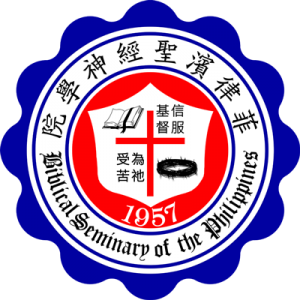基督敎信念的知识地位 Jidu jiao xin nian de zhi shi di wei = Warranted Christian belief {ch} / Aerwen Pulandingge zhu ; Xing Taotao ... [et al.] yi ; Zhao Dunhua shen jiao.
Language: Chinese Original language: English Series: 未名译库 哲学与宗敎系列 Wei ming yi ku. Zhe xue yu zong jiao xi liePublication details: Beijing : Beijing da xue chu ban she, 2004.Edition: Di 1 banDescription: 2, 5, 4, [1], 4, 5, 11, 566 p. ; 21 cmISBN:- 7301080581
- 9787301080580
- Warranted Christian belief. Chinese
| Item type | Current library | Shelving location | Call number | Copy number | Status | Barcode | |
|---|---|---|---|---|---|---|---|
 Books
Books
|
BSOP Library | Chinese Books (General Circulation) | BT1101 P69w 2004 (Browse shelf(Opens below)) | Available | 00047062 | ||
 Books
Books
|
BSOP Library | Chinese Books (General Circulation) | BT1101 P69w 2004 c.2 (Browse shelf(Opens below)) | c.2 | Available | 00047063 | |
 Books
Books
|
BSOP Library | Chinese Books (General Circulation) | BT1101 P69w 2004 c.3 (Browse shelf(Opens below)) | c.3 | Available | 00047064 |
Translation of: Warranted Christian belief / Alvin Plantinga ; New York : Oxford University Press, c2000.
Includes bibliographical references and index (p. 549-566).
English contents : pt. I. Is there a question? -- 1. Kant -- I. The problem -- II. Kant -- A. Two worlds or one? -- B. Arguments or reasons? -- 2. Kaufman and Hick -- I. Kaufman -- A. The real referent and the available referent -- B. The function of religious language -- II. Hick -- A. The real -- B. Coherent? -- C. Religiously relevant? -- D. Is there such a thing? --
pt. II. What is the question? -- 3. Justification and the classical picture -- I. John Locke -- A. Living by reason -- B. Revelation -- II. Classical evidentialism, deontologism, and foundationalism -- A. Classical foundationalism -- B. Classical deontologism -- III. Back to the present -- IV. Problems with the classical picture -- A. Self-referential problems -- B. Most of our beliefs unjustified? -- V. Christian belief justified -- VI. Analogical variations -- A. Variations on classical foundationalism -- B. Variations on the deontology -- C. Is this the de jure question? -- 4. Rationality -- I. Some assorted versions of rationality -- A. Aristotelian rationality -- B. Rationality as proper function -- C. The deliverances of reason -- D. Means-end rationality -- II. Alstonian practical rationality -- A. The initial question -- B. Doxastic practices -- C. Epistemic circularity -- D. The argument for practical rationality -- E. Practical rationality initially characterized -- F. The original position -- G. the wide original position -- H. A narrow original position? -- 5. Warrant and the Freud-and-Marx complaint -- I. The F&M complaint -- A. Freud -- B. Marx -- C. Others -- D. How shall we understand the F&M complaint? -- II. Warrant : the sober truth -- III. The F&M complaint again --
pt. III. Warranted Christian belief -- 6. Warranted belief in God -- I. The Aquinas/Calvin model -- A. Models -- B. Presentation of the model -- II. Is belief in God warrant-basic? -- A. If false, probably not -- B. If true, probably so -- III. The de jure question is not independent of the de facto question -- IV. The F&M complaint revisited -- 7. Sin and its cognitive consequences -- I. Preliminaries -- II. Initial statement of the extended model -- III. The nature of sin -- IV. The noetic effects of sin -- A. The basic consequence -- B. Sin and knowledge -- 8. The extended Aquinas/Calvin model : revealed to our minds -- I. Faith -- II. How does faith work? -- III. Faith and positive epistemic status -- IV. Proper basicality and the role of scripture -- V. Comparison with Locke -- VI. Why necessary? -- VII. Cognitive renewal -- 9. The testimonial model : sealed upon our hearts -- I. Belief and affection -- II. Jonathan Edwards -- A. Intellect and will : which is prior? -- B. The affirmations of faith -- III. Analogue of warrant -- IV. Eros -- 10. Objections -- I. Warrant and the argument from religious experience -- II. What can experience show? -- III. A killer argument? -- IV. Son of Great Pumpkin? -- V. Circularity? --
pt. IV. Defeaters? -- 11. Defeaters and defeat -- I. Nature of defeaters -- II. Defeaters for Christian or theistic belief -- III. Projective theories a defeater for Christian belief? -- 12. Two (or more) kinds of scripture scholarship -- I. Scripture divinely inspired -- II. Traditional Christian biblical commentary -- III. Historical biblical criticism -- A. Varieties of historical biblical criticism -- B. Tensions with traditional Christianity -- IV. Why aren't most Christians more concerned? -- A. Force majeure -- B. A moral imperative? -- C. Historical biblical criticism more inclusive? -- V. Nothing to be concerned about -- A. Troeltschian historical biblical criticism again -- B. Non-Troeltschian historical biblical criticism -- C. Conditionalization -- VI. Concluding coda -- 13. Postmodernism and pluralism -- I. Postmodernism -- A. Is postmodernism inconsistent with Christian belief? -- B. Do these claims defeat Christian belief? -- C. Postmodernism a failure of nerve -- II. Pluralism -- A. A probabilistic defeater? -- B. The charge of moral arbitrariness -- 14. Suffering and evil -- I. Evidential atheological arguments -- A. Rowe's arguments -- B. Draper's argument -- II. Nonargumentative defeaters?


